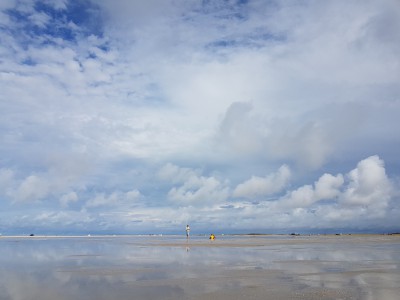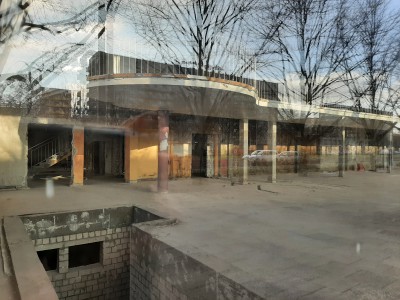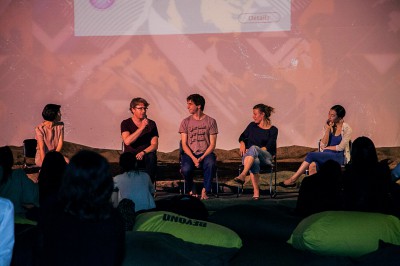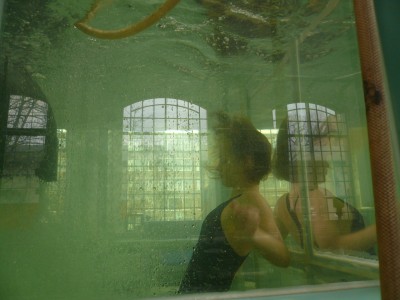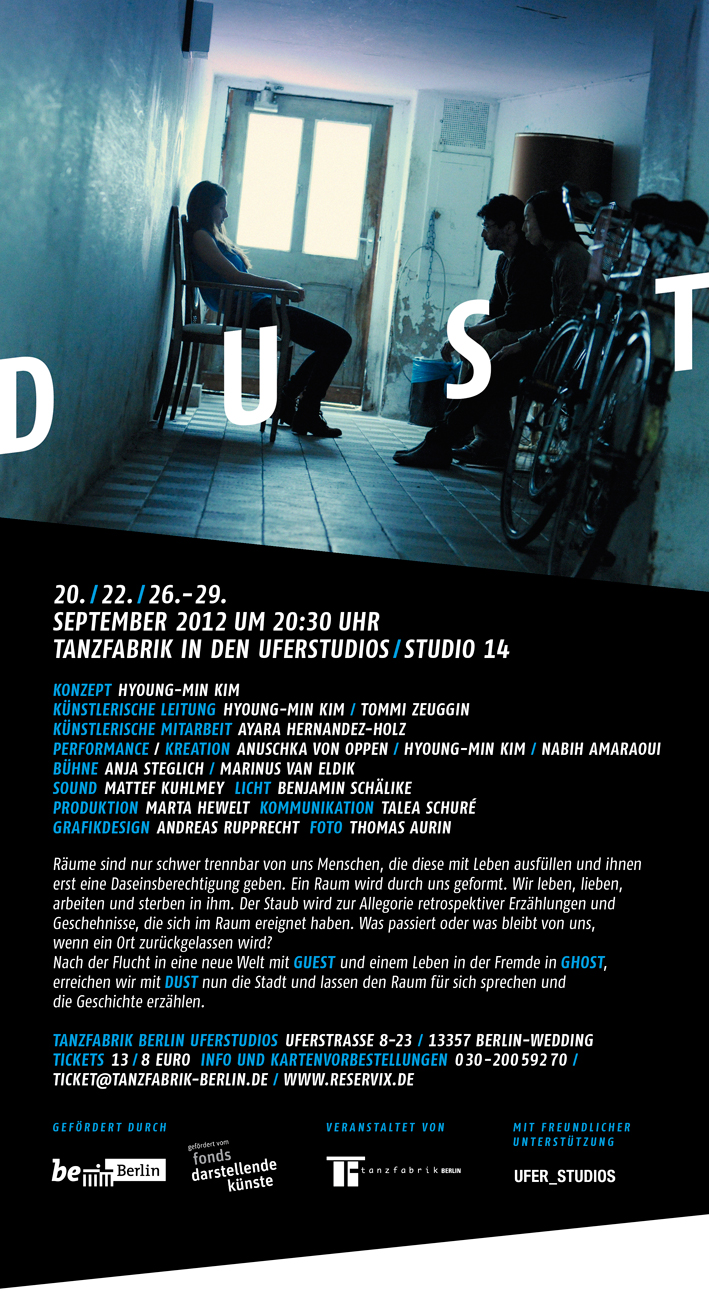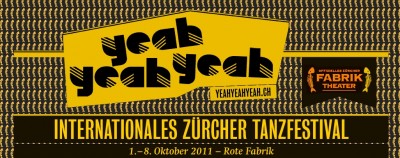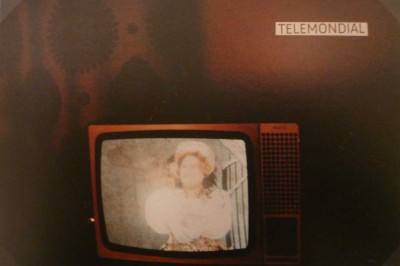a platform for living labs
Consulting & Strategic Development for TU Berlin: StadtManufaktur Berlin.
GUEST in Seoul/ Korea
May 26th/ 27th GUEST was on tour in Seoul/ Korea. Thanks for the support!
see more: Platoon Seoul
ROOF WATER-FARM
applied research & communication // in cooperation with Urban Design // TU Berlin
—
The aim of the project is to develop and to test building-integrated technologies of water treatment and water purification for the irrigation and fertilization of building-integrated greenhouse farms. The hygienically safe use of related water and nutrient flows is at focus. The project includes research on the potentials and opportunities of building-typological and urban spatial integration of Roof Water-Farm types for fish- and plant production. Challenges and risks of the transferability of this comprehensive infrastructural technology will be analyzed within the context of an innovative urban water resource management and urban food production. Guidances for different actors as well as media of communication will be developed and published.
More information: urbandesign.staedtebau.tu-berlin.de or facebook.com/urbandesigncommunication
—
Picture: liquid landscapes // Lecture Performance // Christine Borch + Anja Steglich
DUST
shows: 20./22./26.-29.09.2012 20:30 pm / Uferstudios/ studio 14
see more & get tickets: here
watch the trailer
—
A space is hardly separable from us humans, who fill it out with life and give it a purpose. The space is formed by us. We live, love, work and die in it. The DUST becomes allegory for retrospective stories and events that have taken place in spaces. What happens or remains of us when a place is left behind, orphaned?
After a departure into a new world with GUEST and a life in a foreign land in GHOST, with DUST, we have arrived in the city and let the place tell its story.
—
Räume sind nur schwer trennbar von uns Menschen, die diese mit Leben ausfüllen und ihnen erst eine Daseinsberechtigung geben. Ein Raum wird durch uns geformt. Wir leben, lieben, arbeiten und sterben in ihm. Der Staub wird zur Allegorie retrospektiver Erzählungen und Geschehnisse, die sich im Raum ereignet haben. Was passiert oder was bleibt von uns, wenn ein Ort zurückgelassen wird? DUST lässt den Raum für sich sprechen und die Geschichte erzählen.
—
Support/ Förderung: Regierender Bürgermeister von Berlin Senatskanzlei – Kulturelle Angelegenheiten, Fond Darstellende Künste e.V., Tanzfabrik Berlin e.V.
Bühne/Stage cooperation with Henry Siering handwerk+design
GUEST@Rote Fabrik Zürich 3rd – 4th October
GUEST on tour: we are happy to perform within the International Zürcher Dance Festival this year.
GHOST
concept & performance: Hyoung-Min Kim, Tommi Zeuggin, Felix Marchand // music: Alessio Castellacci // light: Benjamin Schälike // production: Inge Koks
shows: 22-23/ & 25-28/ 07/ 2011 at Uferstudios Berlin
__
__
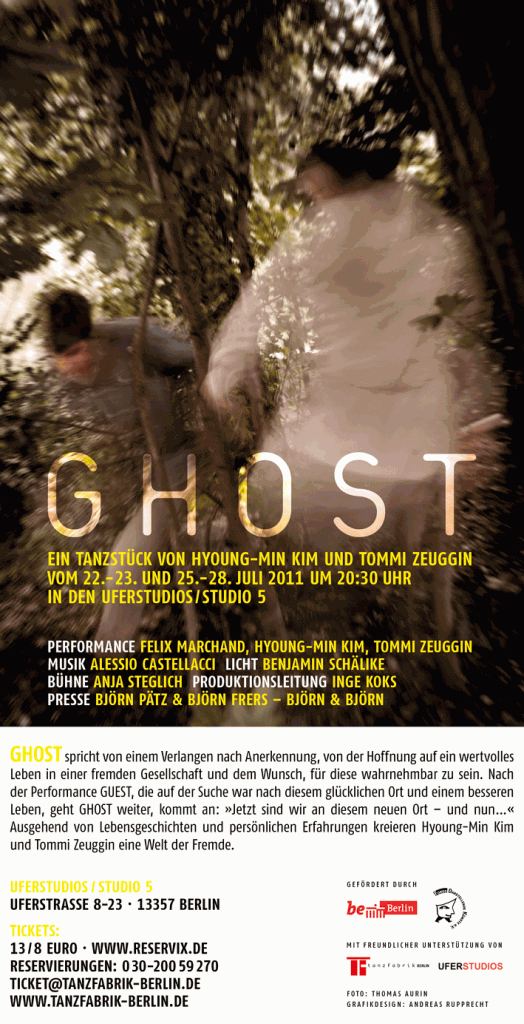
—
kindly supported by the Senate of Berlin, Uferstudios GmbH and Tanzfabrik Berlin
—
‘GHOST revolves around the idea of arriving and the expectations behind it. The ‘final arrival’, as we imagined it when we started our journey, is not existing. Not in this piece, but also not in our world. This impossibility is precisely what we deal with in GHOST: the arrival which is at the same time a non-arrival. One can get to a place geographically, but confronted with it’s structures, we don’t know how to cope with it’s reality.
Starting from the idea of the non-existance of this ‘final arrival’ we stumble upon a question like: what does a goal mean in human life? No matter if it is a place or an object, we seem to have a desire for more or for something else. In this context; what is arriving? In the moment we arrive, our goals and wishes change.’
—
‘GHOST beschäftigt sich mit dem Moment des Ankommens. Aber das finale Ankommen, wie man es sich vorstellt wenn man loszieht, existiert nicht. Nicht in unserem Stück, und auch nicht in dieser Welt. In GHOST versuchen wir genau diese Situation zu betrachten, das Ankommen, das gleichzeitig Nicht-Ankommen ist. Es gibt einen Ort den man geographisch eventuell erreicht, aber vor seine Strukturen gestellt, weiß man nicht, wie man mit seiner Realität umgehen kann. Dass es das endgültige Ankommen für den Menschen nicht gibt, ist aber eine generelle Tatsache. Was ist für den Menschen ein Ziel? Es gibt dieses Bestreben nach mehr oder nach etwas anderem, Gegenstand oder Ort, das spielt keine Rolle. Was bedeutet dann also Ankommen? Wenn wir ankommen, ändert sich das Ziel.’
